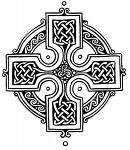It is incomprehensible to me that religion per se is not a basic and foundational part of any truly comprehensive liberal arts education. The historical and contemporary importance of religion (not just the Christian religion but religion as a broader category of inquiry and study) is self-evident in a world torn by religious conflict, competition and claims. And yet, the skeptical gods of the Enlightenment reign triumphant in the academy. Religion is to be suspect on principle. In much of “so-called” higher culture in Western civilization (Europe and North America), religion (and especially the Christian religion) is rejected out of hand as some form of corrupted superstition. It is no longer seen as the queen of academic inquiry but rather treated as the dreads of mere opinion and ignorant opinion at that.
And yet, those same gods of the Enlightenment, so eagerly embraced, are challenged across the landscape by religious climate to truth with a capital T. Two colleagues of mine commented on the subject: “How can your education be liberal if it has no exposure to religion?”(Rev. David McNitsky) “The need for intentional examination of the religious dimension of life is imperative to any first-rate liberal arts institution. As important as open inquiry is in the area of the humanities, arts, and sciences, fine arts, etc. is, I contend, that any complete education must address the religious dimension of life. Religious dimensions of life contextualize all other areas of inquiry.” (Dr. J. Eric McKinney)
Well spoken gentleman!

I am not sure you are going to get much debate on this forum on this topic, I am sure most of your readers agree with your comments.
ReplyDeleteI wonder if the hold up is on the word "religion"? Perhaps, and this is just a speculation, if you changed the course requirement/title from 'religion' to 'spiritual development' or 'spirituality' we might not only see these course back in the mainstream but over flowing with students. From there you can then teach whatever you taught in 'religion' courses with an emphasis on spiritual disciplines, prayer, scripture reading, meditation, service, alms giving, etc. Rather than spending a lot of time on history, different doctrines, and compare and contrast papers on different religions.
If the goal of the course is to develop, as Dr. McKinney states, 'intentional examination of the religious dimension of life' then could not shaping the course to focus on 'intentional examination' of the spiritual life meet the intended goal?
At the very least, just by changing the name you could remove some of the baggage that comes with "religion" even if that is what the course ends up focusing on. Just a thought.
If we're talking about a course offered at a Christian institution (as opposed to a state funded school) then I think it's reasonable to expect that institution to require students to take a course teaching the denominational distinctives of that entity. (e.g. Southern Methodist University should offer (require) a class which teaches a Wesleyan understanding of Christianity.
ReplyDeleteRequiring a course on "spirituality" would be too amorphous and confusing. What would be studied? Tarot cards and rune stones or Blavatsky's teaching on Theosophy?
I attended Southwestern University in Georgetown, Texas, a small, Methodist-affiliated, liberal arts school for my undergraduate studies and subsequent bachelor's degree.
ReplyDeleteSix hours of "religion" or "religion and philosophy" were required for every degree, meaning either six hours of religion, or three hours of religion and three hours of philosophy.
There was no Methodist class offering at that time (the late 1970s). Basically, if you were not a religion major, the courses available to meet the degree requirements were an OT, a NT, and an intro to Philosophy class. But then, S.U. had fewer than 1,000 at the time. It still maintains a small student body -- one of the charms of that fine, liberal arts institution.
I took the OT and then the NT classes and was surprised to learn from the OT professor that the Story of Creation was a myth.
Hmmm...I regurgitated his lectures perfectly because I wanted my "A" for the class, but wrote a disclaimer at the bottom of every paper/exam: "This is what you want, but I don't believe a word of it."
Just saying...
Library Lady
S.U. 1979